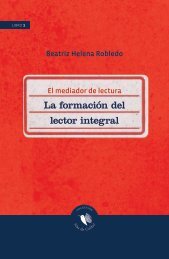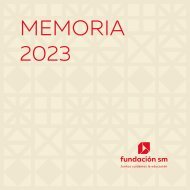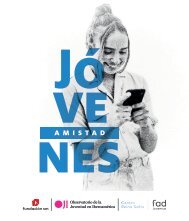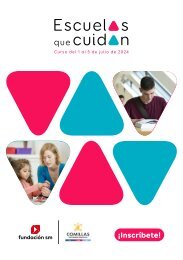Informe PISA 2018 BRASIL (EN)
El Programa para la Evaluación Internacional de Estudiantes (PISA) es una encuesta trienal dirigida a estudiantes de 15 años que evalúa en qué medida han adquirido los conocimientos y habilidades fundamentales para participar plenamente en la sociedad.
El Programa para la Evaluación Internacional de Estudiantes (PISA) es una encuesta trienal dirigida a estudiantes de 15 años que evalúa en qué medida han adquirido los conocimientos y habilidades fundamentales para participar plenamente en la sociedad.
You also want an ePaper? Increase the reach of your titles
YUMPU automatically turns print PDFs into web optimized ePapers that Google loves.
2 | Brazil - Country Note - <strong>PISA</strong> <strong>2018</strong> Results<br />
do so. About two in five high-performing girls expect to work in health-related professions, while only<br />
about one in four high-performing boys expects so. Only 4% of boys and almost no girls in Brazil expect<br />
to work in ICT-related professions.<br />
• In Brazil, 29% of students reported being bullied at least a few times a month (OECD average: 23%).<br />
Yet, 85% of students in Brazil agreed or strongly agreed that it is a good thing to help students who<br />
cannot defend themselves (OECD average: 88%).<br />
• Some 41% of students in Brazil reported that, in every or most language-of-instruction lessons, their<br />
teacher has to wait a long time for students to quiet down (OECD average: 26%). In Brazil, students<br />
who reported that, in every or most lessons, the teacher has to wait a long time for students to quiet<br />
down scored 19 score points lower in reading than students who reported that this never happens or<br />
happens only in some lessons, after accounting for socio-economic status.<br />
• In Brazil, 50% of students had skipped a day of school (OECD average: 21%) and 44% of students<br />
had arrived late for school (OECD average: 48%) in the two weeks prior to the <strong>PISA</strong> test.<br />
• Some 48% of students in Brazil reported that their schoolmates co-operate with each other (OECD<br />
average: 62%) and 57% reported that they compete with each other (OECD average: 50%).<br />
• Around 23% of students in Brazil agreed or strongly agreed that they feel lonely at school (OECD<br />
average: 16%).<br />
• In Brazil, 77% of students agreed or strongly agreed that they can usually find a way out of difficult<br />
situations (OECD average: 84%).<br />
What 15-year-old students in Brazil know and can do<br />
Figure 1. Snapshot of performance in reading, mathematics and science<br />
Note: Only countries and economies with available data are shown.<br />
Source: OECD, <strong>PISA</strong> <strong>2018</strong> Database, Tables I.1 and I.10.1.<br />
• Students in Brazil scored lower than the OECD average in reading, mathematics and science.<br />
• Compared to the OECD average, a smaller proportion of students in Brazil performed at the highest<br />
levels of proficiency (Level 5 or 6) in at least one subject; at the same time a smaller proportion of<br />
students achieved a minimum level of proficiency (Level 2 or higher) in at least one subject.<br />
© OECD 2019 Volumes I-III

















